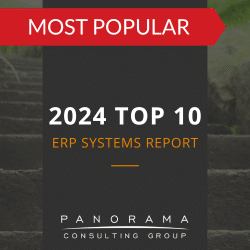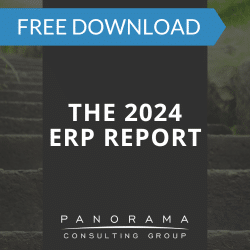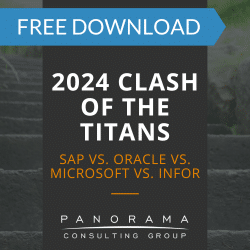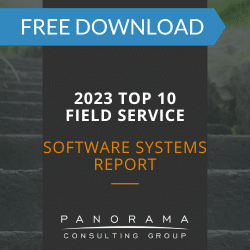While PM sounds like something terrible that you get once a year – like the whooping cough or a bad case of the itchy-scratchies –if your company is implementing an ERP system without a dedicated, experienced PM (project manager), it’s pretty likely that your project is not going as well as it should. In fact, and to be blunt, it’ll probably be an ERP failure.
ERP implementations can be incredibly expensive in terms of raw dollars, time and your staff’s emotional and mental investment. Organizations pay a lot of money for complex software and hardware as well as for the human resources to install and configure the system. Further, ERP implementations disrupt business operations and place huge demands on the time and attention of company leadership, functional area leaders, subject matter experts and the IT staff. Who coordinates all of the work? Who’s the referee? Who is the “single throat to choke”? If you can’t close your eyes, picture him or her clearly, and hear his or her voice in your head, you’ve got one of two problems – serious short-term memory issues or, more likely, an ineffective (or undetermined) project manager.
A project manager performs several key functions that help ensure ERP success. His or her task is to manage the following project-related functions:
- Project Governance – Project governance refers to those processes that provide support for project sponsors, decision-makers and stakeholders. You can think of it at the PM’s moral compass.
- Project Team Performance – Project team performance management leverages status checks and reporting to ensure performance issues are identified and corrected quickly. It also enforces consistent performance reporting guidelines.
- Project Schedule Management – Schedule management identifies project-level milestones and the resources required to meet those milestones. Your PM should be your single “keeper of the truth” when it comes to the status of a project, and the impact on the project resources. Effective PMs aggressively integrate the work of the resources in detailed project schedules, monitor schedule variances and recommend corrective actions to keep the project on track.
- Management of Risks, Issues and Changes to Scope, Timelines and Budgets – Some of the most common reasons projects fail are related to poor management of risks, issues and scope. Good PMs identify, evaluate and communicate risks, issues and the impact of change requests to affected stakeholders. PM’s should routinely facilitate leadership reviews, and help to coordinate and document solutions.
- Project-related Communications – Every project and program requires a great communications plan to be effective. Communicating the project status, as well as risks, issues and organizational change management initiatives is key to keeping the project team and stakeholders aligned and on track.
It is worth noting that tracking the actual spend-rates and forecasting future project costs can be a full-time job. Your PM’s ability to report cost variances and adjust program forecasts should be based on documented change control procedures (contained in the Project Governance Document). The lack of well-crafted and well-understood project controls usually equates to scope creep, delays in the schedule and cost overruns.
In addition to budgeting, a large amount of the PM’s time is spent in resource management (RM). The point of RM is effective utilization. The PM will establish an RM model and track utilization, which will help stakeholders make better decisions for project prioritization. It’s important for the PM to both gather and maintain accurate project data.
In summation, it’s clear that in order to be successful implementing ERP or any other complicated, company-wide initiative, any organization needs someone to ensure things stay on track and that changes to the project status are effectively coordinated and clearly communicated. Before your ERP or IT project kicks off, it’s well worth asking yourself if you’ve “Got PM?”
Written by Bobby Green, Senior ERP Consultant at Panorama Consulting Solutions.













